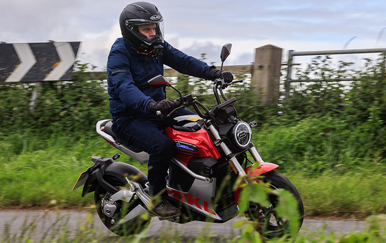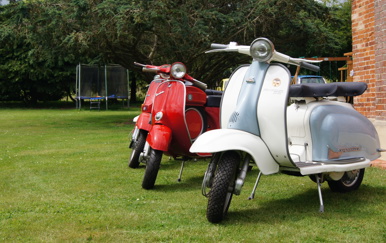As we’ve mentioned previously, the 50cc has made it possible for many 16-year-olds to gain a sense of independence by being able to get themselves on the road without having to ask mum or dad for a lift.
In this blog, we are going to be running down everything you need to know regarding the differences between mopeds and scooters.
So without further ado - let’s get into it!
What is a moped?
Fun fact for you readers (if you didn’t already know) the term ‘moped’ was originally derived from the words ‘motor’ and ‘pedal’. This was due to mopeds traditionally being built with pedals on board.
Fast forward to the modern day, mopeds no longer come equipped with pedals but are instead classed by their engine size. Packed with a 50cc motor capable of producing top speeds of 28mph, mopeds have become a great way for 16-year-olds and up to gain their sense of freedom!
What are the requirements to ride a moped in the UK?
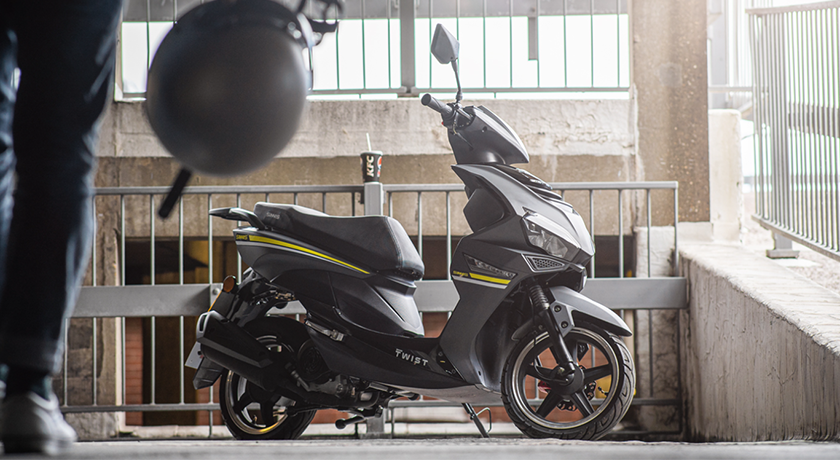
As we briefly mentioned above, to ride a 50cc moped on UK roads you must be at least 16 years of age and have completed your CBT (Compulsory Basic Training).
There is one exception, however, if you passed your driving test before 1st February 2001, you can legally ride a 50cc moped without L Plates on your car licence!
Moped and motorcycle licencing requirements can be tricky to get to grips with, especially for new or young riders. This is why we have attached a handle table below to help you understand.
| Licence: | Requirements: | Minimum age requirements: | |
| Mopeds (50cc/top speed of 28mph) | CBT or AM | Compulsory Basic Training (CBT) | 16 |
| Motorcycles & Scooters (up to 125cc/ 11kW) |
CBT or A1 |
Compulsory Basic Training (CBT) & Theory and A1 licence test |
17 |
| Standard Motorcycle (Up to 35kW) |
A2 |
Progressive access Route - 2 years experience on A1 motorbike & further practical test Direct Access Route - Theory and Practical |
19 |
| Unrestricted Motorcycle | A | Progressive access route - held an A2 licence for a minimum of 2 years - practical test (21 or over) Direct access route - CBT, theory and practical (you must be at least 24) |
21 or 24 |
What is a scooter?
The main factor that will set a scooter apart from a moped is the engine size. Once the engine size surpasses 50cc or exceeds a top speed of 28mph, the two-wheeler is then automatically considered as a scooter.
In the modern day, scooters will range in power output, varying between 50cc at the lowest end and 750cc plus at the top end. You will also find that any bike that has a platform to rest your feet will also be classified as a scooter.
What are the requirements to ride a scooter in the UK?
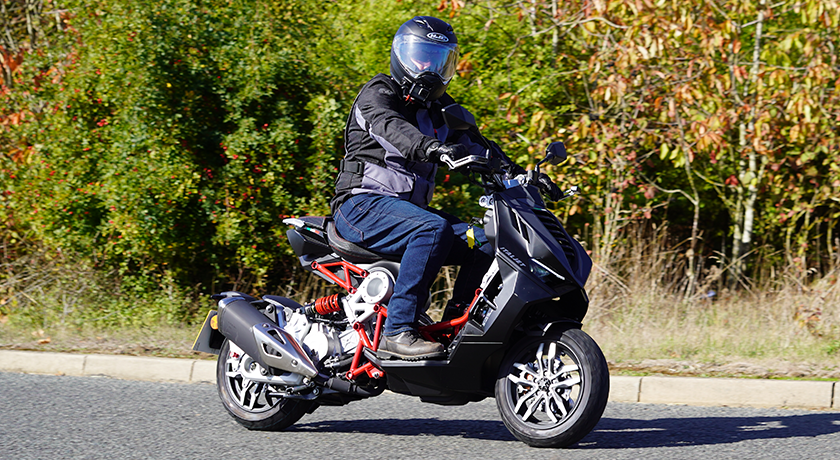
As you can see from the table above, scooters can have any amount of power output, starting at 50cc and making its way up to 750cc. The requirements that allow you to legally ride a scooter on UK roads will depend on the engine size of the scooter.
To ride a 125cc scooter, you will need to be 17 years of age or older, as well as have a valid CBT certificate. This CBT certificate will last two years and will allow you to ride a 125 with a 14.7BHP limit and L plate on your bike. Once your CBT expires, you can either retake your CBT course, or go on to complete further tests to obtain your A1, A2, or Cat A licence.
How to obtain your scooter licence:
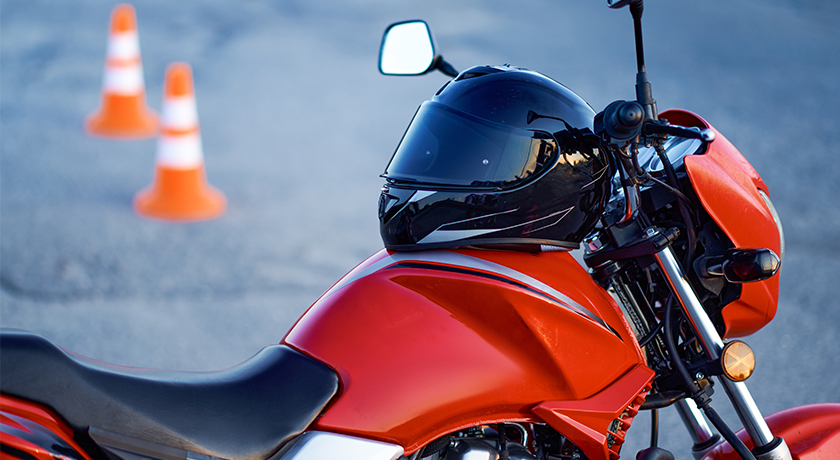
The licencing requirements will vary depending on which one you intend on passing, as well as whether or not you choose to take a direct or passive route (which can also be seen in the table above):
H4: A1 Licence
If you’re desperate to take a pillion you can take an A1 licence at 17. Like all the practical bike tests, it’s a two-part test and you also need a valid Theory Test certificate.
A2 Licence
Once you reach 19 years old you can take the A2 test, once again it’s a two-part test and you’ll need to have a valid Theory Test certificate. Pass this one and you can get some extra power at last. The A2 licence permits you to ride anything up to 46.6bhp and you can ride on the motorway, ride abroad and take a passenger.
A Licence
DAS or Direct Access can be taken at 24 or over. Pass this two-part test and you can rip up those L-Plates for good. You can buy and ride the scooter of your dreams, with no more restrictions or power limits.
What is the difference between moped and scooter insurance?
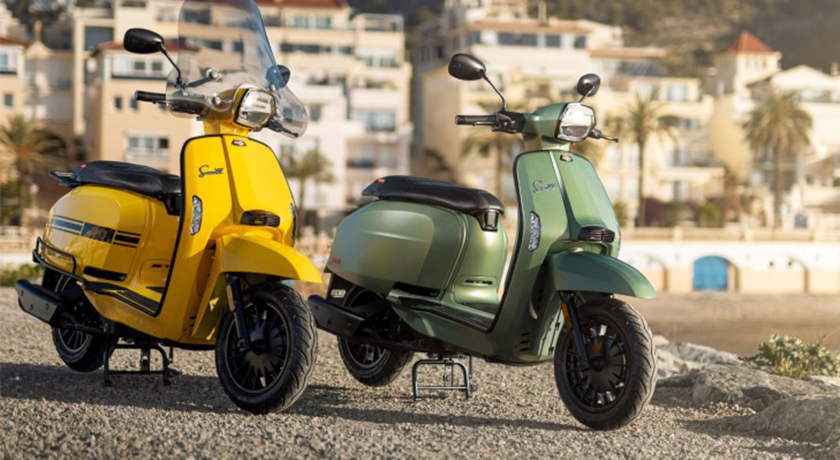
As a general rule, moped insurance is typically cheaper due to their 50cc engine size, which is deemed by insurers as less of a risk on the road, especially in comparison to larger engine counterparts.
However, it is worth noting that the price of your two-wheeler insurance will depend on a variety of other factors, not just the power output, including:
- Age
- Riding experience
- Where you live/where you store your bike overnight
- Occupation
- Intended two-wheeler usage
*If you want to know more regarding factors that will effect the cost of your scooter/moped insurance, make sure to check out our full guide to motorbike insurance!
FAQs
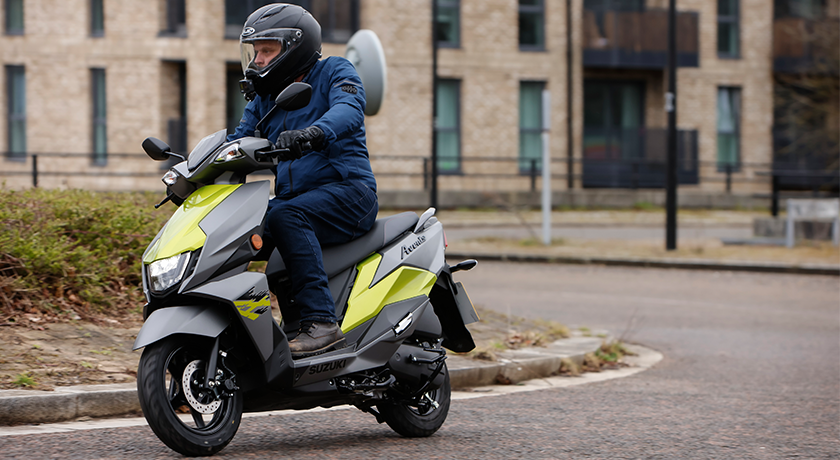
Is a Vespa a scooter or a moped?
The answer is both. Vespa the Piaggio Group owned manufacturer produces a long line of iconic scooters and mopeds including the Sprint 50, Primavera 125 as well as GTS 300 (to name a few).
Any Vespa that comes equipped with an engine capacity that produces less than 50cc is considered a moped, whereas anything with above 50cc is considered a scooter.
Are scooters safer than mopeds?
Due to their smaller engines and lower top speeds, it is easy to assume that mopeds would be safer than scooters, however, this is not necessarily true. Scooters and mopeds are fairly equal, with the sole factor determining this being how you ride it.
What roads can mopeds go on?
As mentioned previously, mopeds can go on any UK road - excluding motorways.
However whilst these two-wheelers are allowed on faster roads such as dual carriageways, it is strongly recommended not to, in the best interest of your and other people on the road's safety.

Get in touch with Lexham!
I hope you enjoyed my rundown on everything you need to know regarding the differences and similarities between scooters and mopeds…
Last but not least, if you do have your very own scooter or moped that needs insuring - make sure to get a quote direct with Lexham!



